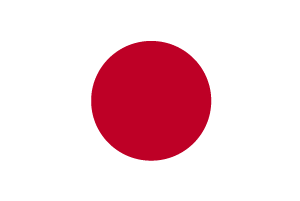
Japan
Japan has a strong domestic programme based on the High Energy Accelerator Research Organization (KEK) and the Kamioka Laboratory, and is currently operating SuperKEK-B, the BELLE II experiment, the J-PARC facility for nuclear and particle physics and the T2K long-baseline neutrino experiment. Japan made an important contribution to the OPAL experiment at LEP, as well as to CHORUS and the AD facility. Japan made a very important financial and technical contribution to the LHC accelerator, as well as to ATLAS via KEK, Tokyo and other universities. Japanese institutions have also joined ALICE and LHCf. Japan is an Observer State with Special Rights, with the right to attend the Restricted Sessions of Council for discussions on LHC matters.
Japan contributed to the material costs of Phase 1 of the WLCG at CERN and is now contributing to deployment of the WLCG with a Tier-2 centre. Japan is also a key contributor to the OPERA experiment, principally via Nagoya University, and to the ASACUSA and ALPHA experiments at the AD, and also participates in fixed-target experiments. Japan also collaborates to the COMPASS, DIRAC, MERIT, NA61 and nTOF experiments. Japan is one of the principal proponents of a future linear collider, and is also making a valuable contribution to CLIC R&D, where KEK has important relevant expertise.
CERN and KEK signed a framework agreement in 2009 and a CERN-KEK Committee was set up to advise the two laboratories on their future collaboration, including contributions to R&D on LHC upgrades.
Japan is making major contributions to R&D for the LHC and ATLAS high-luminosity upgrades, and has recently obtained funding for participation in the construction phase. To facilitate and enhance this cooperation further, an agreement on the reciprocal establishment of a CERN office at KEK and a KEK office at CERN was signed in November 2014.
Dernière mise à jour le 25 février, 2020